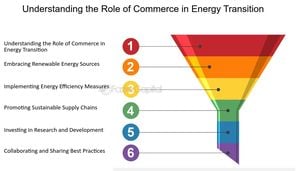With the 2024 U.S. elections now behind us, the political climate is heating up as Republican candidates claim significant victories across various key races. Early projections suggest Republicans have not only maintained control of the House of Representatives but have also snatched control of the U.S. Senate and the White House, marking what many analysts describe as a pivotal change on the American political stage.
Despite the enthusiasm among GOP supporters, the path was not without its roadblocks. Key Republican figures, such as Eric Hovde, who lost to incumbent Senator Tammy Baldwin of Wisconsin, have raised questions about the integrity of the electoral process. Hovde's campaign, which was marked by close margins and unyielding competition, saw him trailing Baldwin by just under 1 percentage point. With the final vote counts still rolling in, or as they would say, "as the count winds up, Hovde is considering requesting a recount without formally conceding the race." While many view this request as standard procedure within such narrow margins, it also reflects the tension and scrutiny around election integrity.
Compounding the issue is the tumultuous election history of candidates like Kari Lake, who lost her bid for the Senate seat against Democrat Ruben Gallego. Lake, known for her controversial stance on various political issues, recently released statements expressing disbelief about her loss, drawing clear parallels with her refusal to concede her 2022 gubernatorial loss. Both candidates’ reactions point to broader themes within the Republican Party, especially as they grapple with accusations of voter fraud—a claim Lake intentionally avoided directly attributing to her loss, which is seen as more diplomatic than her previous approach.
Despite such discontent among some Republican circles, other candidates reported smoother sailing. Voter turnout patterns show some regions solidly backing Republican legislative candidates, reflecting the party's continuing stronghold on specific demographics and districts. This trend aligns with patterns observed during previous elections where red states showcased their loyalty toward Republican measures and policies. This spurred celebrations within party ranks, as GOP leaders lauded the electoral outcomes, casting them as endorsements of their recent legislative battles over issues ranging from taxes to education reform.
Election results illustrated contrasting sentiments across states. While the joy was palpable for Republicans claiming victories, some parts of the country displayed stark divisions. For example, Baldwin's and Gallego's victories counter the broader narrative of Republican dominance, especially considering demographic shifts within traditionally blue areas now leaning Republican. Meanwhile, numerous third-party candidates impacted various races, with many experts highlighting how these individuals siphoned votes away from major party contenders.
With analysts dissecting every angle of these recent results, discussions focus on whether this typical trend of perceived election irregularities will impact future election results. The skeptics argue it will usher forth increased demands for election transparency and reviews, even as many officials assert no widespread fraud took place. Voting irregularities became hot topics during the elections, particularly among Republican detractors seeking to bolster their narratives.
This election was marked not just by individual races but also by strategies employed by both sides to sway undecided voters. For Democrats, the fight rested heavily on progressive platforms, aiming to rally their base and attract moderates disillusioned by extreme partisan divides. Meanwhile, Republicans leaned on historical grievances over previous administrations but also showcased successes under recent Republican leaders. This balance of blame and assurance sought to present their party as the viable alternative to the perceived ineffectiveness of recent Democratic policies.
Looking toward the future, the road to the 2026 midterms seems cautious yet proactive among Republicans. Some party leaders are advocating for embracing broader narratives to encompass constituents’ needs, ranging from economic issues to educational injustices, believing this is the approach necessary to sustain their voting base.
Meanwhile, the Democratic Party continues to navigate its identity crisis, trying to reconcile the progressiveness favored by younger voters with the realities of moderates. They aim not only to recover the seats lost but also to address the narratives surrounding issues of voting rights and election integrity. The successful Senate candidate Baldwin has positioned herself as part of this effort, focusing on unity and rebuilding trust among constituents.
Come 2025, as new terms begin, gauging how each party adapts and responds to their electoral outcomes will be of utmost significance. With young voters, independent factions, and increasing minority populations increasingly holding sway, both major parties will have to innovate their approaches and adapt to these shifting dynamics if they hope to nurture any semblance of stability moving forward.
Interestingly, the fallout from this election extends beyond just immediate results; it has laid groundwork for discussions around voter engagement and mobilization strategies. With many states tightening voting regulations and access—an issue of heated debate throughout the election season—the future of voting rights remains precarious. A controversy deemed as bipartisan just months ago now stands front and center as newly elected officials prepare to enact changes.
Finally, the question on everyone’s mind becomes: What does this all mean for the general direction of American politics moving forward? The elections have certainly set the stage for fierce partisan clashes, and it is likely Republicans will leverage their control to push forward conservative agendas. Democrats, meanwhile, will need to recalibrate their strategies and coalitions to best represent their constituents’ interests. For now, as America adjusts to its new political actors, all eyes will be focused on how these changes will impact day-to-day lives and their longer-term effects.
With the weight of public scrutiny bearing down on both parties, the stage is set for American voters to see what these newly elected officials will accomplish before the next electoral contests roll around. It’s clear the 2024 elections were but one act within our democratic theater, and as all parties reflect and respond to voter sentiment, they’ll need to be ready to hit the ground running.



